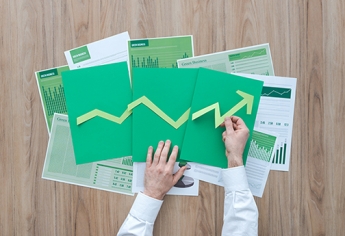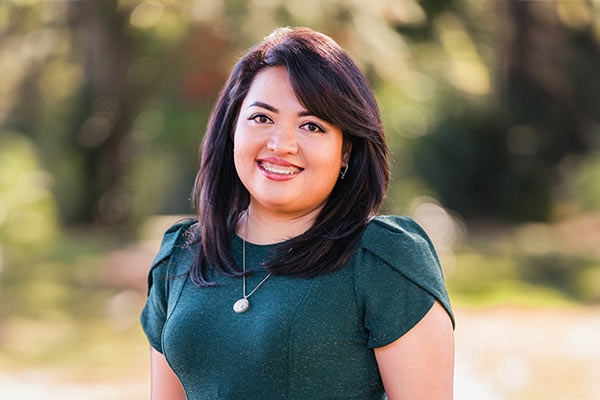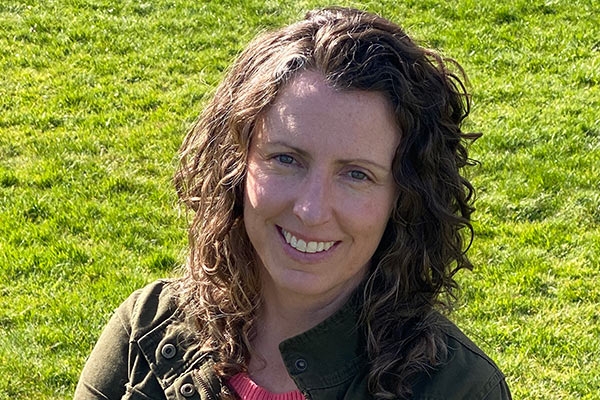You can be forgiven a feeling of optimism when you talk with Construction and Sustainability department director David Brotherton about the future. Despite dire headlines about climate change and global warming and the ensuing ecological and human disasters these changes might wreak, David sees a bright future for renewable energy.
"I'm actually encouraged, much more so now than I may have been five or six years ago. There has been a lot of positive changes in the sustainability space and it has accelerated faster than I thought it would."
Of course, this sunny and solar-powered future is not here yet, and there is a lot of work to be done. The nature of the climate-change challenges that face our generation defies a quick-fix, single-issue solution. In David's words, "Everyone thinks that it's just grid electricity, but that's only a part of the problem. Transportation emissions are another part. Deforestation and agriculture make up another. Industrial processes—making things like cement and paper and pulp products—that's just another part of the equation. So when you're trying to tackle this from a policy standpoint, it's a very difficult and intertwined problem that touches virtually every sector of the economy."
Working Toward a Sustainable Future
Raising public awareness doesn’t appear to be an issue. According to a recent Pew Research report, "83% of Americans say increasing use of renewable energy sources is a top or important priority for the country’s energy policies."
The politicization of the dialogue surrounding climate and climate-change research, however, has created much disagreement about how to reach those renewable energy goals. Still, David sees positive growth from the business community's reaction to sustainability.
Basic business strategy now includes climate-related issues. Financial institutions are putting pressure on companies to do greenhouse-gas inventories and then publicly disclose their carbon footprint and how it affects and is integrated into its business strategy. "We're north of 85% of Fortune 500 companies providing this data," David says. "And these are now long, 50-page reports. They're reporting to a high level of granular detail.”

Since the Paris Agreement in 2015, companies are beginning to push science-based emissions targets that are measurable using agreed-upon metrics. Often, the first steps are to bring in outside consultants to perform energy and waste audits—that'll help them get started toward a sustainable future.
The bottom line is that companies that manage carbon well generally have better returns financially. It's still a basic chicken-and-egg question: Is it that managing carbon output results in financial savings, or do well-managed companies just manage one more thing (carbon) in an efficient and profitable manner?
Again, David sees reason for hope through the lens of his years in the business. "I've seen enough of these companies with really superior results that it makes me think that managing sustainable issues well will bring about cost reductions. And, depending on the industry, some companies can leverage this even more."
So, Who's Doing What?
When you review a list of 100 companies who have pledged to attain 100-percent renewable targets, the roster reflects international corporate success. There are the usual suspects on the list: No one should be surprised that Apple or Starbucks are pledge-takers as their marketing reflects a desire to do good in addition to doing well in the marketplace. However, other entries such as GM or WalMart might be more of a surprise.
According to David, WalMart is a staunch advocate of sustainability. "While WalMart may not be known as a sustainability leader, they've actually done a lot. In their transportation and on-site renewables, they've done a great job. There's a deep commitment there."
In addition to company profits, benefits can be seen for the job outlook in sustainability skills. The Environmental Defense Fund (EDF) estimates that there are now 4–4.5 million sustainability jobs in the U.S. And while many of those jobs are completely within the sustainability sphere, sustainability skills are also desirable in a variety of fields.
David notes that, "Often, companies are not at the level of sophistication that they're going to have green marketing specialists in house and advertise for a job with expertise in sustainable marketing strategies or sustainable procurement or supply chain professionals. So if you're already in those spaces and you want to leverage these new opportunities, that's a big part of the value proposition you would make to an employer."
How You Can Make a Difference
The complexity and breadth of the climate-change problem is what drives the curriculum for the Advanced Program in Sustainable Management. Another factor in the program's evolution is the student population, as they come from a variety of fields, with the students shaping the curriculum to its current configuration.
"I wanted to make something that was as flexible as possible for students,” David says. “When we did the initial analysis and research on the career paths and tracks of our past students, we were seeing that our students were coming from a lot of different disciplines and then accelerating their careers or using our program to enhance whatever position they were currently in. We developed about ten courses and let the students select a path they want to take."
Another benefit to the program lies in its corps of working professionals who teach the courses, including David. Like the students, they are working and teaching, and time is precious—with the result that the curriculum is less theoretical and more practical. There are still readings, of course, but the core issues deal with real-world case examples, and the classes leverage the professional expertise of both the students and the instructors to maximize the learning experience.
If you want to take advantage of current and future opportunities in the sustainability space, the Advanced Program in Sustainable Management offers you a way to tailor the curriculum to fit your interests. Start with a course today.



